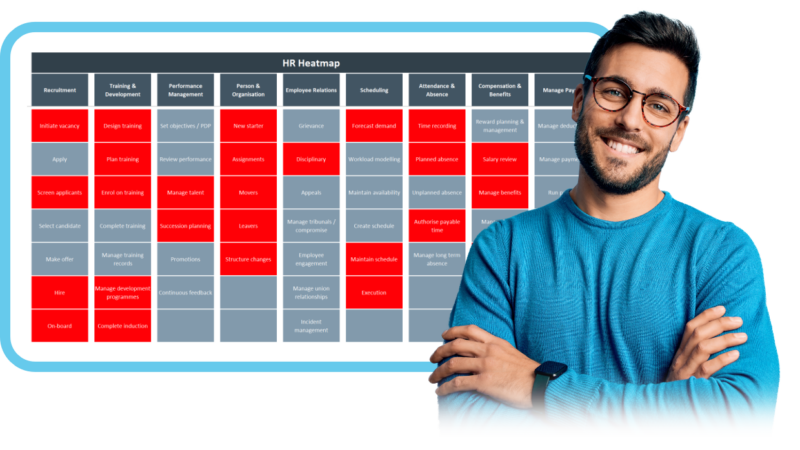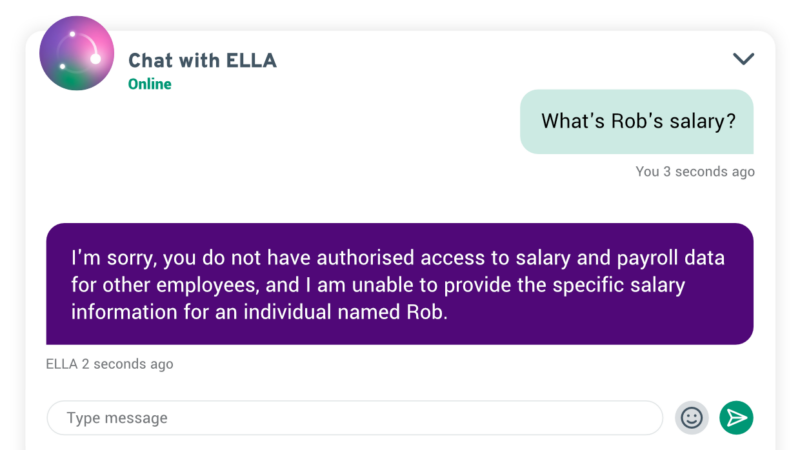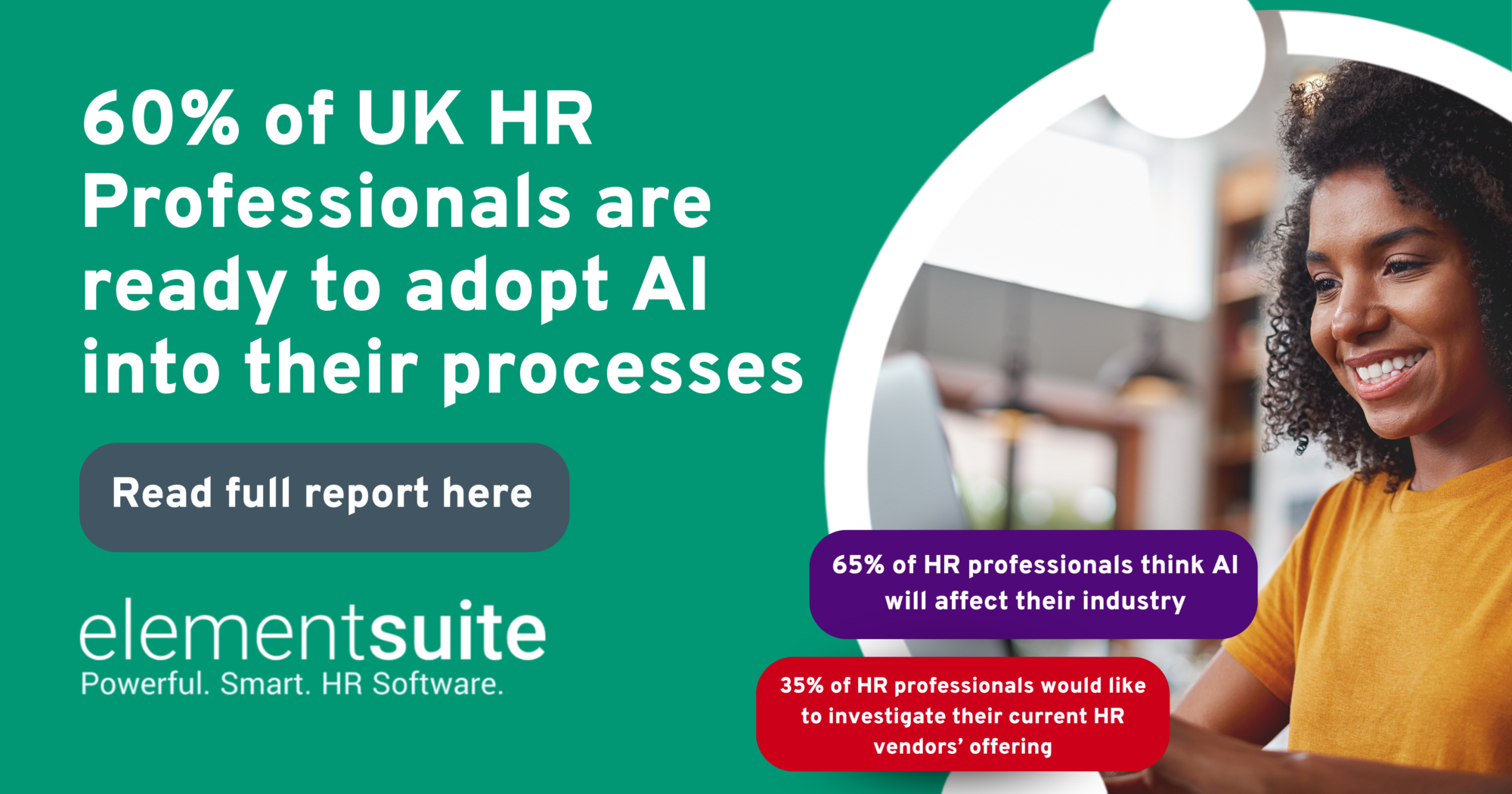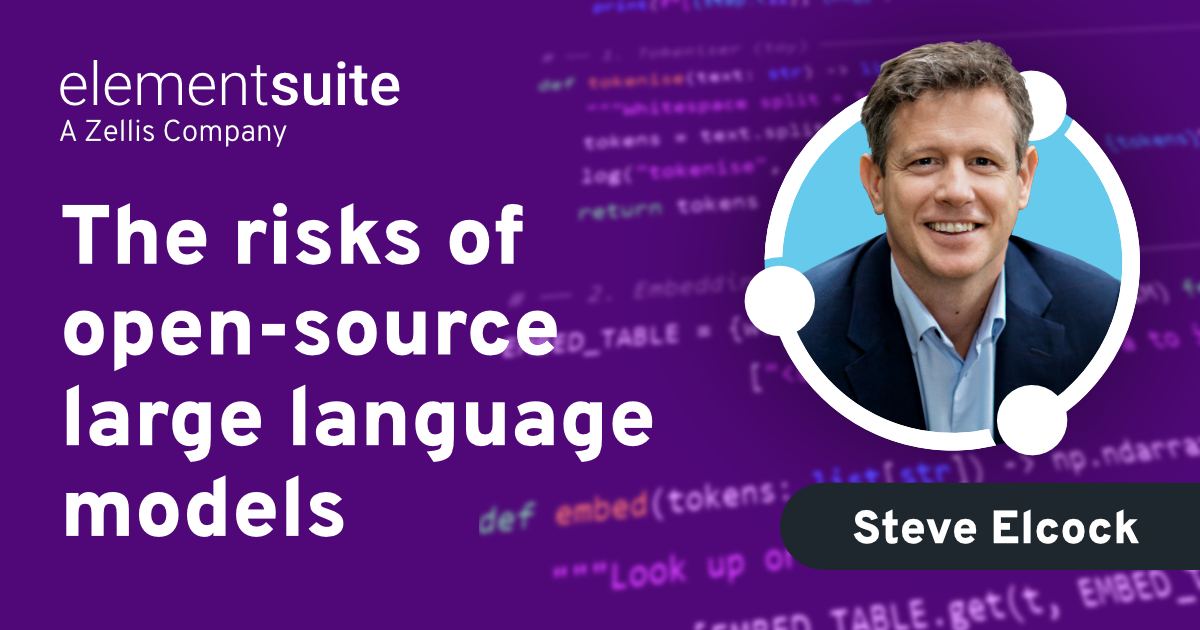Over the last few months, we engaged an audience of over 3,300 HR professionals through our groundbreaking AI for HR webinar series, focusing on the transformative power of AI. Throughout these sessions, our audience participated in a series of anonymous polls allowing us to gauge the perceptions, experiences, and expectations of HR professionals regarding AI implementation both within HR and across the organisation.
The responses we received were nothing short of fascinating. They revealed a wide array of opinions and insights about the current state and future potential of AI in the workplace.
Our attendees’ enthusiasm and participation underscored the growing interest in and importance of AI in HR and business operations.
In this article, we will delve into the intriguing findings from our polls, highlighting key trends, surprising revelations, and the implications for organisations looking to harness the power of AI. Whether you are an HR professional, a business leader, or simply interested in the evolving landscape of AI, these results offer valuable perspectives and actionable insights.
60% of HR professionals state that organisations are looking to adopt AI into their processes
Most HR professionals indicated that their organisations are actively seeking to integrate AI into their processes. But where should they begin? The first crucial step is to identify where departments are currently expending time on routine, repetitive tasks that could be better allocated to more strategic activities.
Heatmapping
To pinpoint the areas where AI can make most impact, we recommend using a trusty HR heatmap.
By using a heatmap to visualise their HR operating Model on a page, and RAG (Red/Amber/Green), their levelled HR functions, HR departments can visually identify and highlight the tasks and processes that consume excessive time. These highlighted areas represent prime opportunities for AI-driven optimisation.
For instance, as shown in this example HR department heatmap, tasks such as resume screening, scheduling interviews, and managing routine employee queries can be marked as high-priority targets for AI implementation.
Organisations can significantly enhance efficiency by focusing on these areas, allowing HR professionals to dedicate more time to strategic initiatives such as talent development, employee engagement, and organisational planning.

This process automation can be replicated across various departments within the business (using process maps), allowing staff to focus on high-value work that truly matters to them rather than on tedious and mundane tasks they would prefer to avoid.
How much time can be saved?
In order to understand and measure AI’s impact across the organisation, HR professionals can quantify the productivity gains from AI integration using a “Productivity Index” metric which is similar to the concept of an FTE. They can gauge the true value of AI-driven efficiency by assessing how much faster tasks are completed—whether it’s a 5%, 10%, or 20% improvement.
This measurement is critical in determining the extent to which AI tools should be deployed to enhance productivity. By systematically evaluating these improvements, HR can provide data-driven insights that inform strategic decisions about AI implementation across the business. This approach ensures that AI integration is effective and aligns with the broader organisational goals of enhancing efficiency, productivity, and employee satisfaction.
65% of HR professionals think AI will affect their industry
During our ‘AI for Business’ webinar, we explored the groundbreaking research presented in the report “GPT for GPTs: An Early Look at the Labor Market Impact Potential of Large Language Models,” conducted by OpenAI, OpenResearch, and the University of Pennsylvania.
This comprehensive study thoroughly examines how AI is poised to revolutionise numerous industries. The findings underscore AI’s potential to significantly transform sectors such as finance, insurance, electronics, retail, healthcare, and publishing, among many others.
Impact on white collar industries
One of the most compelling insights from the poll and the research paper is the profound impact AI is expected to have on white-collar industries.
These sectors will likely undergo substantial changes as AI technologies become increasingly embedded in business operations. The integration of AI promises to redefine task execution, streamline processes, and enhance productivity across these diverse fields. This shift signifies a technological advancement and heralds a new era in the professional landscape, where AI-driven efficiencies and innovations become a cornerstone of business strategy.
35% of HR professionals would like to investigate their current HR vendors’ offering
Without a doubt, the best way to integrate AI into your HR processes is to first investigate your current HR vendor’s offering. Your HR system already comes with data security controls in place in the form of authentication (are you who you say you are?) and authorisation (what information are you allowed to see?). Ensuring appropriate security in your AI deployment is a key risk to be managed, and critical to implementing AI safely into your organisation. But not all HR vendors have been quick to ride the AI wave, so there’s a few key bits to understand first:
Understand your HR vendor’s AI approach
When evaluating your current HR vendor’s AI offerings, it is essential to understand their specific approach to artificial intelligence. It’s important to remember that AI is an umbrella term encompassing many technologies, from simple algorithms to advanced machine learning and deep learning systems. Given that AI is often used as a marketing buzzword, it’s crucial to scrutinise these claims carefully.
Ask the important questions
Ask your vendor detailed questions about their AI capabilities to ensure you get a genuine and effective AI solution. Determine whether their technology involves machine learning, deep learning, or other AI methodologies, and enquire about the specific use cases their AI supports. Have they adopted the latest transformer architecture models within their AI tools, and most importantly, how is their AI solution secured – using appropriate authentication and authorisation to use the static and dynamic data that will satisfy your company’s AI use cases. Understanding these aspects will help assess whether their AI offering aligns with your organisation’s needs and goals.
- How does the AI authenticate against static (e.g. policies, documents) and dynamic (e.g. Personally Identifiable Information in the HRIS) data
- Have they bolted on a third party AI tool or is it their own?
- Where and how is your data being stored?
- If your HR provider has grown through acquisition, how will the AI tool work across the multiple systems? e.g. Will there be a time lag?
Future-proof your operations
Moreover, you need to ensure that your vendor is proficient with the latest AI tools and techniques. This proficiency is key to future-proofing your operations and ensuring that your organisation can adapt to ongoing advancements in AI technology. By doing so, you can confidently integrate AI into your HR processes, knowing you are leveraging the most current and effective tools available.
53% of HR professionals are looking to layer AI tools over their existing HR system
You have two options:
- Purchase ‘best of breed’ solutions, which are specific AI tools produced to undertake specific use cases (checking the authorisation and authentication within these is KEY!). However, purchasing multiple AI tools means you’re sharing your data in multiple places (potentially all with different associated security policies), and you could end up with a patchwork of AI solutions, and potential security holes.
- Purchase an AI tool that can layer over your whole HR system – it may be that your current vendor does not provide the AI functionality you require and you’re currently in contract for a number of years. So you may need to consider a layered solution that works over the top of a data lake or your data warehouse.
For those looking to address specific use cases within their HR processes, proprietary AI tools can be a highly effective option. However, the sheer variety of available tools and the rapidly evolving market can be overwhelming, so let’s break this down.
Safeguarding personal information
When implementing these specialised AI tools, one key consideration is how your data is classified and managed. Ensuring that users have appropriate authentication and authorisation to access data is crucial, especially when dealing with personally identifiable information (PII), Intellectual Property (IP), and other confidential company information.
It’s important to know that some AI tools (e.g. free versions of ChatGPT) may use your data to train their models. This means that any information inputted into the system could potentially be accessed by other users, raising significant privacy and security concerns.
For instance, employees might inadvertently gain access to sensitive information such as colleagues’ salaries, private business policies, and other confidential details, as has been documented with some cases of users using Microsoft CoPilot.
How to avoid data misuse
Numerous cautionary tales of businesses encountering issues due to improper use of AI tools exist. Ensuring robust data governance and privacy measures are in place is essential to mitigate these risks.
By carefully selecting AI tools that prioritise data security and implementing strict access controls, HR professionals can harness AI’s benefits while safeguarding sensitive information.
So, how exactly can you avoid this?
There are 5 key questions to consider when looking at AI vendors:
- What model does the solution use?
- How is the model trained?
- How is your dataset used in training?
- Are the outcomes of the solutions explainable?
- How do you ensure the outcomes are verified and repeatable?
- Does the model have authentication and authorisation?
When layered over existing HR systems, AI tools like ELLA (elementsuite Large Language Assistant) can ensure peace of mind regarding data security. ELLA operates within your dedicated, private security environment, guaranteeing that data is kept safe and confidential. This approach embeds AI within your existing HR platform, ensuring that sensitive information is shielded from external threats and unauthorised access.

17% of HR admins are looking to develop in-house AI tools with their IT team
Although IT departments can develop bespoke AI software solutions, this requires a team with significant AI expertise and capabilities.
Techniques to fully unlock the power of AI
An AI tool should provide flexibility and control over the 5 key AI techniques to fully unlock the power of Large Language Models (LLMs) to generate the best responses and business outcomes:
- Prompt engineering
- Retrieval augmented generation
- Fine tuning of domain-specific models
- Reinforcement learning using human feedback
- AI-powered workflow
To see Steve Elcock’s (AI expert, CEO & founder of elementsuite) breakdown of the 5 key AI techniques in more detail, check out Steve’s article: ‘Optimising the 5 stages of AI for meaningful data-driven decisions’.
Key takeaways
In conclusion, integrating AI into HR and business operations is not just a trend but a transformative movement reshaping the professional landscape. Our webinars highlighted AI’s immense potential across various sectors, from finance and healthcare to retail and publishing. The insights gathered from anonymous polls underscored a growing interest and a significant shift towards AI adoption among professionals.
By leveraging AI, organisations can streamline processes, enhance productivity, and allow employees to focus on more meaningful and strategic tasks. However, it is crucial to approach AI implementation thoughtfully. This involves careful selection of AI tools, robust data governance, and ongoing evaluation of AI’s impact on efficiency and productivity.
HR professionals, in particular, play a pivotal role in navigating this transition. From identifying areas ripe for automation to measuring productivity gains and ensuring data security, HR is at the forefront of integrating AI into the workplace.
As we progress, the key to successful AI integration lies in continuous learning, strategic implementation, and a commitment to leveraging technology to create more efficient, productive, and engaging workplaces.
Interested in learning more about elementsuite’s AI tool, ELLA? Read more about ELLA here.
Want to see a live demo of ELLA in action to see how it can fit into your organisation’s HR practices? Book a demo today.




